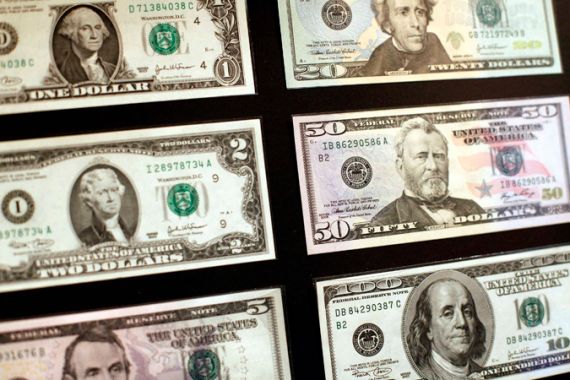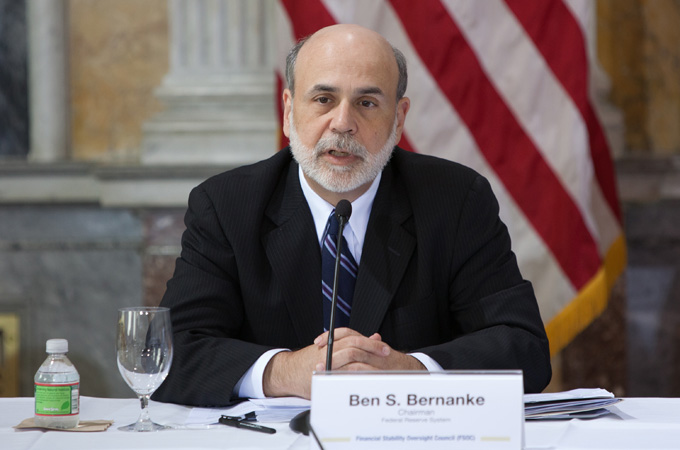US to further economic intervention
Federal Reserve chairman signals intent to take more action in effort to stabilise inflation and unemployment levels.

 |
| Bernanke said on Fiday that the Federal Reserve was failing to keep inflation and unemployment stable [GALLO/GETTY] |
Ben Bernanke, the head of the US central bank, has said that more government intervention is needed to pull the country out of its economic slump.
In a speech he delivered in Boston, Massachusetts, the US Federal Reserve chairman said his institution is failing in both of its key aims: keeping inflation and unemployment at sustainable levels.
Keep reading
list of 4 itemsUS imposes new sanctions on Iran after attack on Israel
A flash flood and a quiet sale highlight India’s Sikkim’s hydro problems
Why is Germany maintaining economic ties with China?
“There would appear – all else being equal – to be a case for further action,” Bernanke said in his address on Friday at a conference sponsored by the Boston Federal Reserve Bank.
He said that the economy is growing at a pace that is “less vigorous than we would like”, adding that the inflation rate is falling and that a boost is needed to avoid deflation.
He also warned that prolonged high employment in the United States, which is at nearly 10 per cent, is putting economic recovery at risk.
Quantitative easing
One solution Bernanke has proposed is quantitative easing – increasing the money supply by flooding financial institutions with capital, in an effort to promote increased lending and liquidity.
In simpler terms, that would mean the Fed buying up financial assets, such as government and corporate bonds, by using funds the bank has created out of thin air.
However, Bernanke indicated discussions were still being held to decide how aggressive the bank’s move would be.
“Nonconventional policies have costs and limitations that must be taken into account in judging whether and how aggressively they should be used,” he said.
The Federal Reserve is expected to back the move to buy up US government bonds at its next meeting on November 3.
Deficit down
The US treasury, meanwhile, has reported that this year’s budget deficit narrowed to $1.294 trillion from last year’s record $1.416 trillion.
Although officials on Friday called it the biggest deficit-to-GDP improvement in 23 years, the budget gap remains the second-highest in US history.
“It’s still abnormally large in terms of GDP, and doesn’t change the need for fiscal consolidation,” Alan Ruskin, the global head of foreign exchange market strategy at Deutsche Bank in New York, said.
“You would have to see figures in the six per cent range before you start to change perceptions that there’s been a genuine improvement.”
The budget gap was $177bn less than the Obama administration had estimated in July, with much of the reduction due to lower-than-forecast spending on financial bailout programmes and higher-than-expected tax collections.